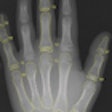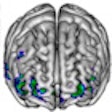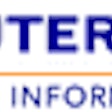Pediatric Radiology: Page 19
GE nets newborn MRI research award
April 11, 2011
X-ray identifies chronic rhinosinusitis in most kids
March 14, 2011
Carestream launches pediatric package at ECR
March 6, 2011
High-pitch chest CT captures fast-moving babies
March 5, 2011
Danish firm Visiana tackles bone age evaluation
February 27, 2011
Image Gently launches fluoro campaign on 3rd anniversary
February 13, 2011
Study advises caution in using x-ray for fetuses, infants
February 10, 2011
Rads do well using smartphones to read CT, MR images
January 18, 2011
PET may help find cause for epileptic brain disease in kids
January 2, 2011
Translabial ultrasound helps in labor assessment
December 27, 2010


